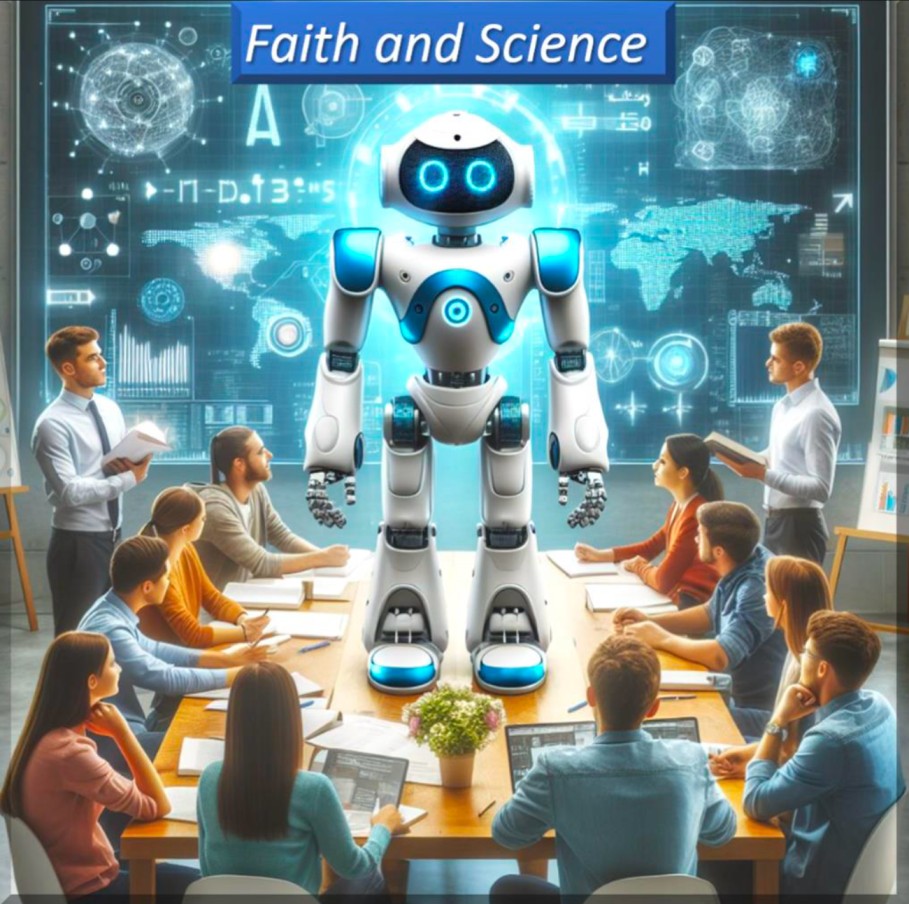ORU AI Position Statement (2024)

Overview
The 2024 University Planning Council’s KPI 6.8 is an initiative to review new AI developments and make any recommended changes to the ORU AI position paper, and submit recommended revision to the President’s Office by January 1, 2024. The AI committee has reviewed the AI Position Paper that was created and approved in 2023. The committee does feel strongly that there should be more AI literacy and policy AI documents drafted in 2024, but the University’s current Position Paper on AI should remain as written. Below is the AI position statement.
Oral Roberts University Position Paper on Artificial Intelligence
As a Christian University, Oral Roberts University is called to develop Holy Spirit-empowered leaders through whole person education to impact the world.
Throughout its history, ORU has been a leader in the use of technology to educate its students. When the University opened in 1965, the centerpiece of the library was a $500,000 RCA-designed “Dial Access Information Retrieval System” (DAIRS) that allowed students to access both audio and video instruction at 130 stations equipped with closed-circuit television monitors. The University also had a 100,000-watt FM radio station, language lab, and a performing studio or self-analysis lab where students could rehearse both vocally and visually and immediately see themselves in action. ORU continues to advance in technology with virtual and augmented reality, as well as mirrored learning.
While technology is vital in carrying out the mission of ORU, the University was also founded upon the unchanging precepts of the Bible and the important role faith plays in raising up students to hear God’s voice. ORU believes in the infallible Word of God (2 Tim 3:16), the value of every human being who is made in God’s image (Gen 1:27, Psalm 139:13), and that wisdom and knowledge come from God, who gives generously to all (James 1:5, Proverbs 2:6).
While artificial intelligence (AI) in all its forms is a tool to inform and aid human reasoning and make tasks easier, it also has potential risks if not used with wisdom and care. For the purposes of this paper, we are defining AI to mean computer systems that imitate intelligent human behavior such as visual perception, speech recognition, decision-making, and translation between language—all with a wide aim of goals that vary depending on commercial or research purposes for which they are developed. We also acknowledge that AI as a technology is still in its infancy and that no one can foresee plainly how it will develop over time.
ORU affirms that God created humans in His image, that all humans are worthy of love, and distinct from all other creation in that God has given humans authority over all creation. As a result, no form of technology should ever be used to usurp or subvert this stewardship, which has been entrusted solely to humanity by God. Also, no technology should be assigned a level of human identity, worth, dignity or moral reasoning. (Gen 1:26-28; Isaiah 43:6-7; Jeremiah 1:5; John 13:34; Col 1:16, 3:10; Eph 4:24)
ORU affirms that God has given humans skills in creating technology including AI. When man applies this technology within God’s moral will, it is an example of man’s obedience to his command to steward creation and honor Him. ORU acknowledges that technology can be used to uphold human dignity, lead to greater flourishing, and alleviate human suffering, but ORU denies that the use of AI is morally neutral. AI is not worthy of a human’s hope, worship, or love. Jesus alone atones for sin and reconciles humanity to God, which means technology such as AI cannot fulfill humanity’s ultimate needs. No application of AI should ever devalue or degrade the dignity and worth of another human being. While AI excels at processing data and making determinations, it is incapable of possessing the capacity for moral agency or responsibility. Humans should not cede their moral accountability or responsibilities to any form of AI. God and God alone judges humans and their behavior. (Ex 20:3, 31:1-11, Prov 16:4; Matt 22:37-40; Rom 3:23, Rom 2:6-8; Gal 5:19-21; 2 Peter 1:5-8; 1 John 2:1)
ORU affirms that all humans have a right to privacy and personal property and that any use of AI to collect personal information must conform to ethical guidelines that uphold the dignity of all people. Consent to data collection must be made clear, and even when an individual gives clear consent to use personal data, which should be a prerequisite for such use, that data should never be used to manipulate or exploit any individual or group. Data should never be mishandled, misused, or abused for sinful purposes to reinforce bias, strengthen the powerful, or demean the weak. (Ex 20;15; Psalm 147:5; Isaiah 40:13-14; Matt 10:16; Gal 6:2; Heb 4:12-13; 1 John 1:7)
ORU affirms that AI may be used in policing, intelligence, surveillance, and investigation to protect and preserve human life and pursue justice for all people, but it should never be used in a way that dehumanizes, depersonalizes, or harms humans. (Romans 13:1-7)
ORU affirms that AI should never discriminate. Because AI is created by humans, it will be inherently subject to bias. Because of that bias, it will need continual human oversight. AI should never violate the fundamental principle of human dignity for all people and should never reinforce or further an ideology seeking to subjugate human autonomy under the power of the state. (Micah 6:8; John 13:34; Gal 3:28-29, 5:13-14; Phil 2:3-4, Rom 12:10)
ORU affirms that service to one another through work is part of God’s plan for human
beings. While AI may be used in ways to aid our work or allow us to make fuller use
of our gifts, it should never eliminate opportunities to serve each other. (Gen 1:27,
2:5, 2:15; Isa 65: 21-24; Rom 12:6-8; Eph 4:11-16)
ORU AI Position Paper (PDF)

